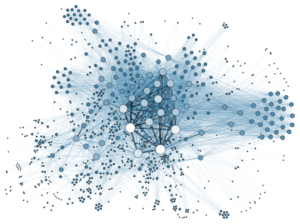
More Chance
####### Sampling Data | Understanding Chance
© University of Sydney DATA1001/
Unit Overview
Population Sample 3 Sampling Data 4 Decisions with Data 1 Exploring Data 2 Modelling Data
More Chance
Data Story | Why did the Chevalier de Mere lose money?
Making lists
The Addition Rule
How the Chevalier de Mere stopped losing
Summary
Data Story
Why did the Chevalier de Mere lose money?
He reasoned: Game 1 roll # rolls Win A P(1 Ace) = 1/6 4 P(at least 1 Ace) = 4×1/6 = 2/ B P(double-Ace) = 1/36 24 P(double-Ace) = 24*1/36 = 2/ Why did he lose money?
- The· Chevalier de Méré was a 17th century gambler, who played 2 games:
- GameA: Toss a die 4 times. Win = at least 1 “Ace”.
- GameB: Toss a pair of dice 24 times: Win = at least 1 double-Ace.
- Note: an “Ace” means “1”.
Making lists
Example Two dice are thrown. What is the chance of getting a total of 6 spots?
Method1: Write a full list of outcomes and count the outcomes of interest. So the chance is 5/36 (approx 0).
Method2: Summarise in a tree diagram Start 1 2 3 4 5 6 1 2 3 4 5 6 The totals of 6 are (1,5), (2,4), (3,3), (4,2), (5,1) giving 5/36.
Method3: Simulate 1. Physically throw 2 dices times and record the findings. 2. Use an app and record the findings. 3. Use R. · x · ·
So the (simulated) chance of getting a total of 6 is 148/1000 = 0, which is very close to the exact answer of 5/36.
Example Three dice are thrown. What is the chance of getting a total of 6 spots?
Method2: Summarise in a tree diagram Start 1 2 3 4 5 6 1 2 3 4 5 6 1 2 3 4 5 6
Method3: Simulate in R set( 1 ) totals=sample( 1 : 6 , 1000 , rep = T)+sample( 1 : 6 , 1000 , rep = T)+sample( 1 : 6 , 1000 , rep = T) table(totals) ## totals ## 3 4 5 6 7 8 9 10 11 12 13 14 15 16 17 18 ## 5 9 24 41 67 99 122 136 111 133 94 70 47 26 12 4 barplot(table(totals), main=”1000 rolls: sum of 3 dice”)

